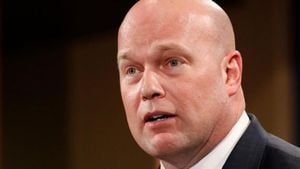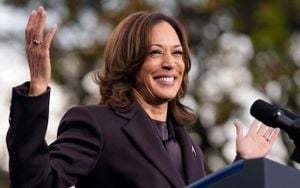The COP29 climate conference is currently underway in Baku, Azerbaijan, with nearly 200 nations gathered to hash out important details on climate finance aimed at aiding developing nations. This conference is particularly significant as it seeks to finalize funding commitments necessary to support nations grappling with the urgent demands of climate change.
Following the release of new draft texts early Thursday morning, the atmosphere at the conference has turned tense. Delegates from both developed and developing countries have expressed discontent with these drafts, which failed to outline specific financial commitments from wealthier nations. Instead of establishing concrete figures, many sections contained vague placeholders, such as “X,” leading to frustration among participants who are seeking actionable agreements.
Developing countries, which are collectively demanding at least $1 trillion annually starting from 2025 to address climate impacts and facilitate transitions to low-carbon economies, have found the draft texts lacking. This figure is significantly higher than the $200 billion to $300 billion reportedly being discussed by the European Union's negotiators. The vast gap has raised alarms and accusations of inadequate ambition among wealthy nations.
The Colombian Environment Minister pointed fingers at richer countries, accusing them of using geopolitical maneuvers instead of genuinely addressing financing needs. The tensions echo sentiments from past climate conferences, where developed nations have often struggled to deliver meaningful financial assistance to their developing counterparts.
Wopke Hoekstra, the EU Climate Commissioner, has criticized the current lack of ambition, calling it “clearly unacceptable.” His comments reflect broader frustrations shared across the negotiating halls, where developing nations, including Pakistan, have underscored the urgency for commitments to combat climate change's devastating impacts.
According to sources close to the COP29 presidency, some believe they are “nearing a historic breakthrough” but cautioned against preemptive optimism. Feedback on the drafts remains uneven, with many representatives noting the absence of specific financial commitments as particularly problematic. The climate finance draft is particularly important as it will determine how much wealthy nations will contribute to the global effort to combat climate change.
During this COP, negotiators have faced numerous hurdles related to who should be held responsible for financing and how to track and measure those funds effectively. The paradox is palpable: countries cannot agree on how much to raise without first determining how the money will be sourced, yet developing nations want to reject any framework which might lead to lower collection targets. This standoff means negotiations remain difficult, as both sides struggle to find common ground.
The current standoff has reignited debates over the participation of private sectors and the consideration of loans over grants. Complicities arise, too, as some developing nations resist counting private investment toward their climate finance goals, stressing the importance of government-backed funding to secure resources.
Even within the ranks of developing countries, there are divisions. Some nations advocate for reliance on private funding, whereas others strongly oppose it, asserting the lack of accountability associated with private sector contributions. The call for grant-based financing reinforces this sentiment, particularly as existing aid mixed primarily with loans has only deepened the financial burdens of poorer nations.
This sentiment was echoed by activists and civil society representatives attending the conference. Oscar Soria, director at the Common Initiative think tank, has pointed out the symbolic significance of the zero funding targets, emphasizing the risks intrinsic to the vague commitments presented this time around. Activists warn of what they describe as the “ineptitude” on display, as developed countries appear to stall progress.
Expectations were high as the conference entered its concluding days. Countries hoped for clarity on the new collective quantified goal (NCQG)—a decisive aspect sought to provide transparency around funding levels moving forward. Unfortunately, the latest drafts offered only two extremities without addressing the main needs expressed by poorer nations.
While countries like Saudi Arabia have sought to undermine previous commitments made at earlier conferences, some observers are worried about the broader lack of accountability and responsiveness from wealthier states. The failure to build upon resolutions outlined at COP28, particularly those condemning fossil fuels, leaves many advocates feeling disillusioned.
Calls are growing for rich nations to put aside political maneuvering and start delivering solid financial commitments. Joseph Sikulu from 350.org remarked, “What we got is a text with no clear grant-based core money.” He emphasized, “Nothing less than $1 trillion grants per year will be enough to see those most impacted by climate change on their path to adaptation.”
The upcoming negotiations will require more than mere discussions; tangible results are pivotal for creating momentum against climate impacts across the globe. With the COP29 deadline looming, the question now is whether negotiators can overcome their divisions and arrive at viable solutions.
Time is running short for final negotiations here at COP29, and many across the hallways of the conference center remain hopeful yet wary. The stakes could not be higher, as the world watches to see whether these nations can converge on shared commitments or if the conversation will once again lapse back to stagnation.



